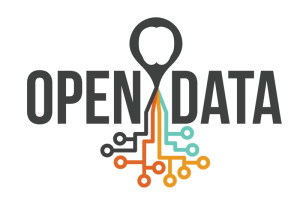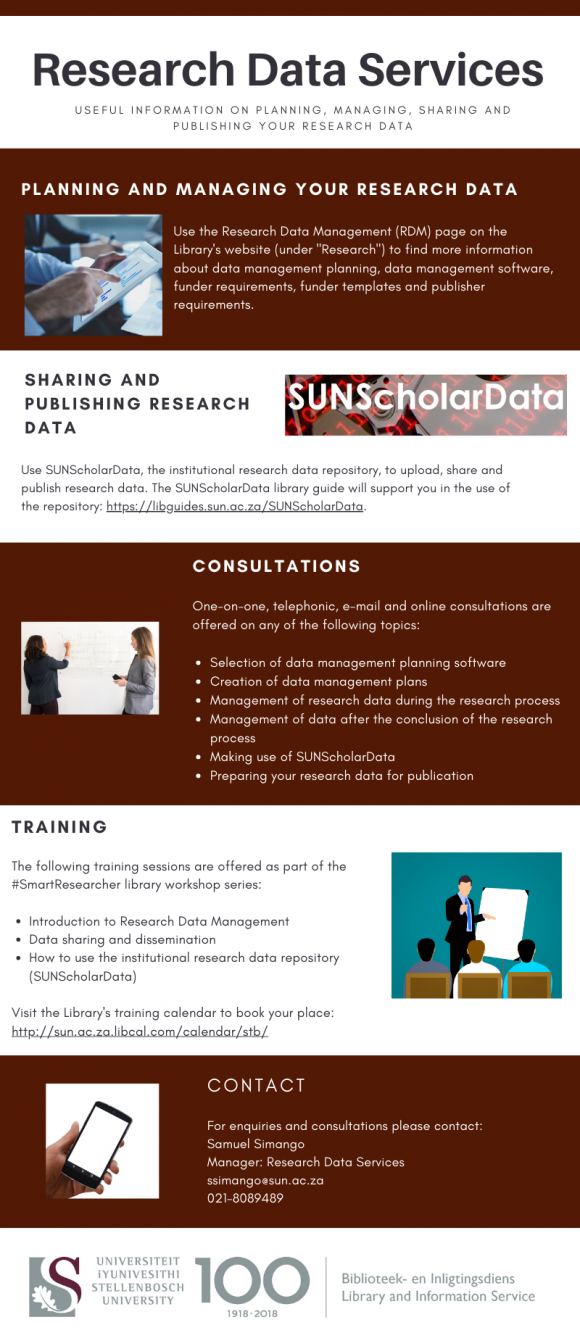Research data is the cornerstone of all scientific research and refers to the recorded factual material that is commonly accepted within the scientific community as evidence that may be used to validate research findings. As such, managing research data has become an essential part of every research endeavor. This has created the need for research institutions to develop systems to appropriately manage their research data with the aim to ensure more productive and efficient science as new knowledge is created by building on previous scientific discoveries.
In this context, SU through its Library and Information Service had to conceptualise Research Data Management (RDM) with the aim to provide an array of RDM services to SU Library clients. For the purpose of this article, the primary focus will be limited to SU research data management planning as a service. A Data Management Plan (DMP) is a document that describes the manner in which research data will be treated during and after the completion of a research project. Amongst other things, this entails comprehensively describing research data beginning from its type, how it is going to be collected, processed, analysed and shared during a research project, as well as the manner in which research data will be published and/or preserved beyond a research project. SU researchers are expected to, beforehand, write a plan on how they will collect, analyse, and outline the conditions under which data may be shared and/or disseminated. DMPs often vary from one research project to another.

The Research Data Management lifecycle
The SU Library provides support on how to write DMPs for researchers. This is to ensure that all contemporary research done at the institution complies with the RDM regulations that are already in place. Some external research funders also mandate researchers to provide DMPs as part of their grant requirements. In this context, the Library may recommend RDM planning tools that are openly available. These tools enable researchers to clearly describe the type of data, format, volume and how they intend to collect such data, and or how the currently existing data would be reused if conducting secondary research. Liaising with the SU research data services librarians during the planning phase, researchers may receive guidance on how to write documentation for and organise research data. The RDM planning phase also presents an opportunity for the SU library to encourage researchers to share their research data through outlets that are supportive of the FAIR Data Principles. The SU Library does provide a platform supportive of the previously mentioned principles for researchers in the form of SUNScholarData, which is a research data repository that is managed and controlled by the Library. SU researchers enjoy exclusive rights to openly publish their research data to the repository, subject to third-party contract terms and conditions should the research project be externally funded. The Library remains a natural partner in the research process and RDM planning is one of the various research support services provided that are instrumental for the scientific research process.
Author: Sizwe Ngcobo
 Image source: JulieBeck
Image source: JulieBeck